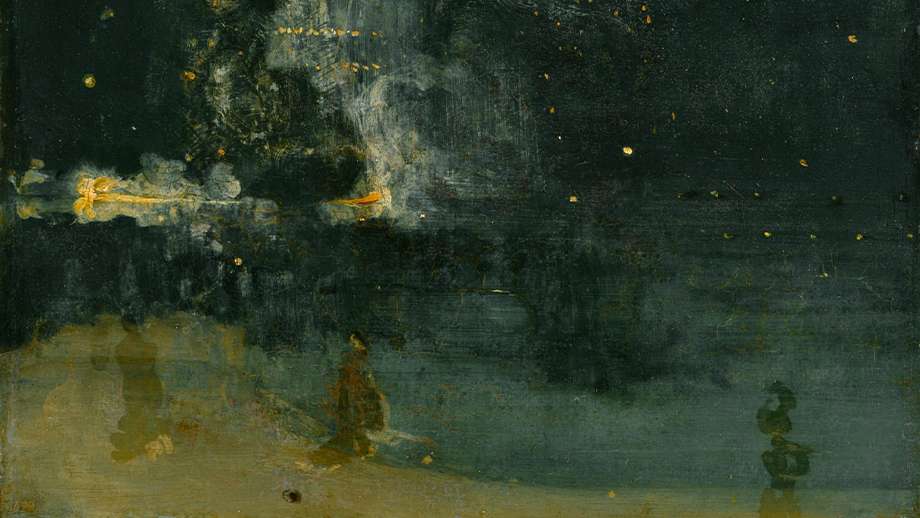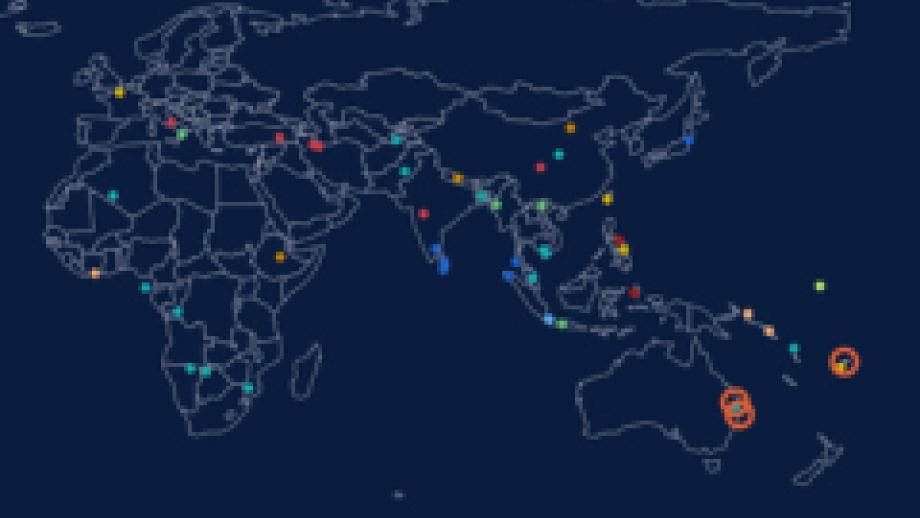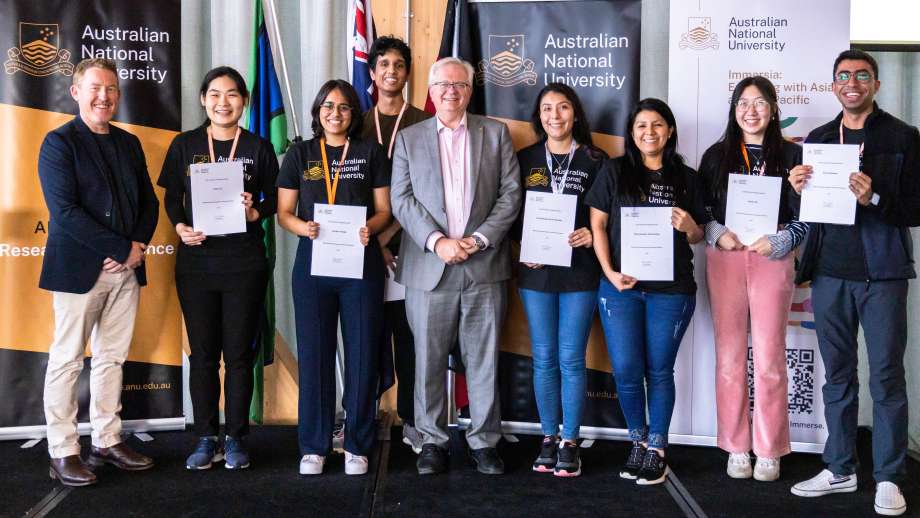2023 ANU Pacific Institute Annual Lecture - The 'whole of life' way
Presented by ANU College of Asia & the Pacific
The 2023 ANU Pacific Institute Annual Lecture - The 'whole of life' way is presented by Reverend Professor Upolu Lumā Vaai, Professor and Principal of the Pacific Theological College in Fiji.
About the lecture
Everything flowing is dying in the trap of coloniality. The Vanua/Whenua/Fanua, whose life is shaped by complexity and never-ending flow of relationships, is constantly inundated with development paradigms forged in the policy halls that worship ideologies of simplicity and order. And as we teach the Fanua what sustainability is as outlined in our policies, we slowly relegate their 'whole of life' way to the background by denying complexity and wisdom, the very tools that forge ground-up and holistic sustainable life. Whatever coloniality is, its greatest achievement is to make us think that the other dimensions that make up the 'whole of life' such as spirituality, intangibility, chaos, uncertainty, and complexity, are immeasurable and defective therefore must be annihilated. We are constantly swimming in the currents of the pathological narrative of 'Onefication' that utters life by annihilating life.
This faasoa (sharing) has three aims. First, it examines how and why our development narrative has always been obsessed with the pull of the so-called the 'Onefication Way' at the heart of the single-story epidemic. Second, it explores the 'Whole of Life Way' as a relational philosophy to challenge and deepen the Pacific Way, as a (k)new consciousness, tested and lived by Pasifika communities for centuries, assisted with their resilience processes, shaped their ecological spiritualities and wellbeing, and underpinned their 'whole of life' knowledge. Third, it suggests the needed shifts of mindsets and ways of knowing and being if the relational 'Whole of Life' Way is to inform transformative policies and development strategies. The key question is: What is there in our communities' 'Whole of Life' Way that could assist in creating a resilient Pasifika region?
Note
Audience members will have the opportunity for a Q&A session with Reverend Professor Upolu Lumā Vaai, followed by light refreshments.
About the speaker
Upolu Lumā Vaai grew up both in the coastal and inland villages in the island of Savaii, Samoa. He counted time according to the shadows of the sun, created fire out of rubbing sticks, lived on what is available each day, drank from the nearby streams, ate wild bats, wild boars, wild chickens, and learned land-based protocols on how to appreciate the eleele (land) and its diversity, practiced regenerative economy, learned to navigate complexity through wisdom, and walked the relational footpaths guided by the spirits of his ancestors. These shape his theology, philosophy, and educational vision. He is Principal and Professor of Theology & Ethics at the Pacific Theological College.
He is a practiced indigenous philosopher and decolonial theologian. He is a regional and internationally leading voice in reclaiming and promoting Pasifika philosophies and theologies to underpin the development of a new development story grounded on the 'whole of life' philosophies of Pasifika communities. He is regularly invited by many international forums to speak on Pasifika relationality, relational philosophy, relational hermeneutics, relational theology, and relational ways of knowing and being, which are ideas scattered throughout his many publications and research projects.
His recent books on relationality are 'reStorying the Pasifika Household' (2023, with Aisake Casimira), Relational Hermeneutics: Decolonizing the Mindset and the Pacific Itulagi (2017, with Aisake Casimira), and The Relational Self: Decolonizing Personhood in the Pacific (2017, with Unaisi Nabobo-Baba). He currently leads the establishment of a new regional Pasifika Communities University of the Pacific churches premised on the 'whole of life' philosophies and spiritualties and communities-based learning approaches of communities.
Location
Room: Physics Auditorium
Speakers
- Reverend Professor Upolu Lumā Vaai, Professor and Principal, Pacific Theological College, Fiji.
Contact
- CAP Partnerships & Engagement



